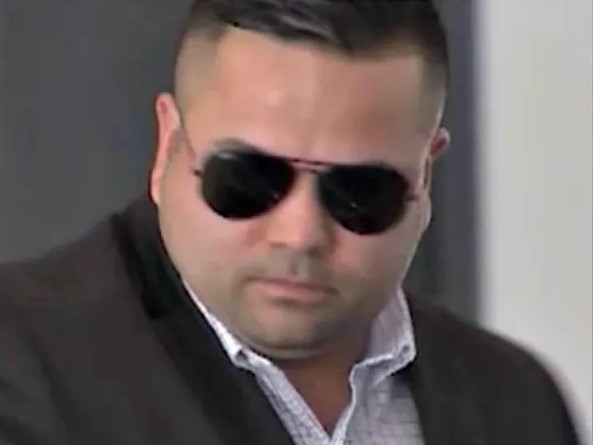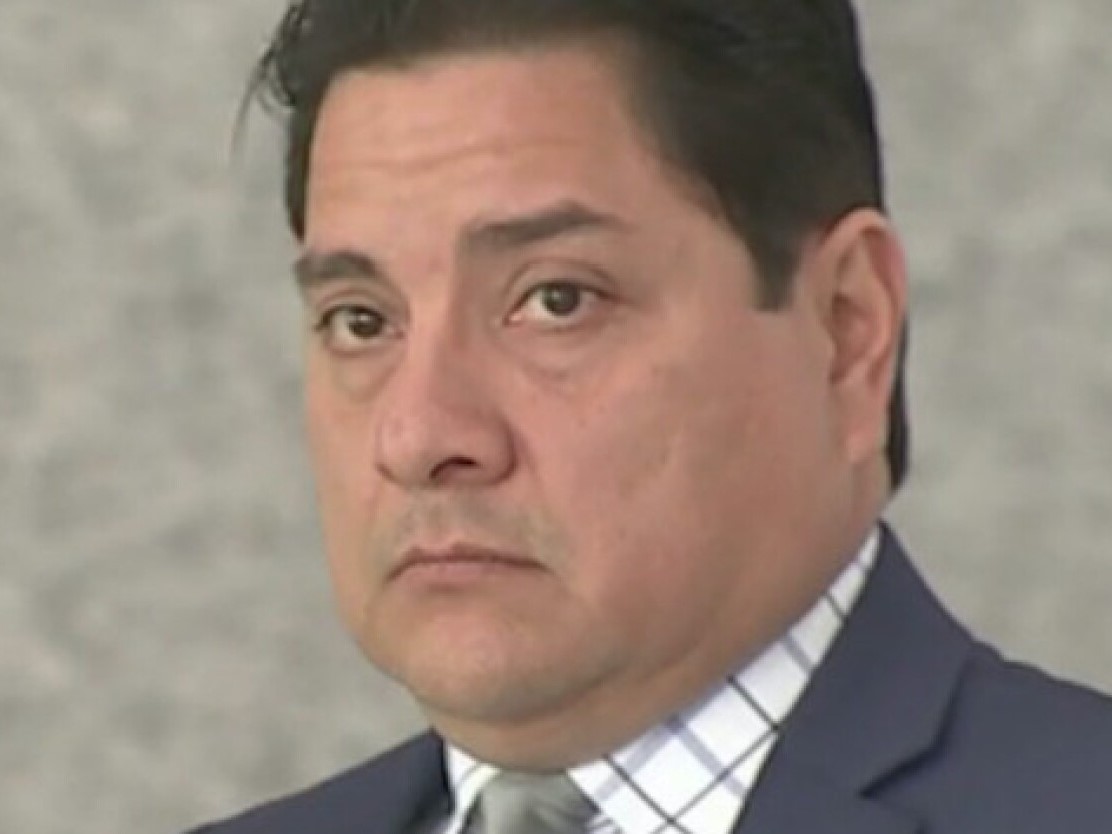A PROJECT OF THE UNIVERSITY OF CALIFORNIA IRVINE NEWKIRK CENTER FOR SCIENCE & SOCIETY,
UNIVERSITY OF MICHIGAN LAW SCHOOL & MICHIGAN STATE UNIVERSITY COLLEGE OF LAW
Illinois 2019
Illinois 2019
Judges vacated the convictions and dismissed the charges against eight defendants in Chicago, Illinois, after the officers involved with their arrests were convicted on federal charges of theft, embezzlement, obstruction of justice, and deprivation of civil rights.
Sergeant Xavier Elizondo and Officer David Salgado were members of the gang-enforcement unit in the Chicago Police Department.


The FBI began investigating the potential misconduct in late 2017, after receiving a tip from a confidential source that an informant who worked with Elizondo’s team had told the FBI’s source about receiving cash and drugs from the officers in exchange for information. The officers would then use a so-called “John Doe” application for a search warrant, which didn’t require naming the source of the information. Although the confidential informant was required to appear before the judge prior to the granting of the warrant, the officers had other persons pose as these informants.
The FBI devised a sting operation, according to court records. A government source met with Elizondo and his informant, and told them about a stash house on the city’s west side. According to an affidavit by an FBI agent, Elizondo promised to give the informant a cut of the take. Salgado then applied for and received a search warrant, which was executed on December 20, 2017.
At the apartment, Elizondo and Salgado found $15,000 in cash hidden in a stove. They also discovered the hidden recording equipment, although they didn’t know it had been installed by the FBI. Elizondo would later tell his source that they properly inventoried the money because of the surveillance and complained that, absent the video camera, “it would have been a good Christmas.”
A month later, on January 28, 2018, the FBI tried again. This time, the officers had been tipped about possible drugs and cash in a rental car at Midway Airport.
According to court documents, the officers found $18,200 in the car’s trunk but took $4,000 before inventorying the remaining $14,200. They then took the car to a police impound lot.
According to reporting in the Chicago Tribune, Salgado ran into FBI agents the next day at the lot. They told him they were with internal affairs. Salgado called Elizondo, who told him to get rid of the money. “Make sure whatever you have in your house isn’t there no more,” Elizondo said. Salgado replied, “Yeah, yeah.”
A federal grand jury in U.S. District Court for the Northern District of Illinois indicted Elizondo and Salgado on May 9, 2018, charging them with crimes related to a conspiracy to fraudulently obtain search warrants in order to seize and steal property. A superseding indictment was filed on March 19, 2019.
At trial, Elizondo testified that he pretended to be corrupt, because it helped cultivate informants. “There’s some trickery involved in it,” Elizondo said. “It's the nature of law enforcement working with informants. It’s the nature of the beast.”
A federal jury convicted both officers on October 22, 2019 on all charges. In addition to the convictions for fraud, embezzlement and civil-rights violations, Salgado was convicted on an additional count of making a false statement to the FBI. Salgado was later sentenced to just under six years in prison, while Elizondo, the acknowledged ringleader, received a sentence of seven years and three months.
At his sentencing, Salgado said he had lost his way after his parents died in 2017 and 2018 and apologized for his actions. He said he believed strongly in the chain of command. “Standing here today I feel ashamed and embarrassed, disgraced, ashamed that I allowed myself to just throw the motions at work and blindly following orders from my supervisor, embarrassed that I brought the shame, heartache to my family, especially after all the loss we have recently suffered,” he said.
Judge Matthew Kennelly said that Salgado’s misconduct involved more than just following orders. He and Elizondo had dehumanized the victims of their actions. “The crime is severe because it’s part of many things that corrode the trust of the public. People look at things like this and they say: ‘These people, I guess they just don’t follow the rules. They don’t have to follow rules. They don’t think they have to follow the rules. And ultimately when that gets believed on a widespread basis, there is no trust left. And without trust, the system doesn’t work. The system just doesn’t work. We’re seeing that.”
The crime is severe because it’s part of many things that corrode the trust of the public. People look at things like this and they say: ‘These people, I guess they just don’t follow the rules. They don’t have to follow rules. They don’t think they have to follow the rules. And ultimately when that gets believed on a widespread basis, there is no trust left.
After the convictions of the two officers, the Cook County State’s Attorney Office dismissed nearly 40 active cases involving the corrupt officers. Separately, defendants whose convictions had been based in part on search warrants executed by Elizondo and Salgado began moving to have their convictions vacated and charges dismissed.
The first of these cases was filed by Elgin Jordan, who had been convicted in 2015 of possession of a controlled substance with intent to deliver. He had received a new trial in August 2019, based on a judge denying him a bench trial.
After the convictions of Elizondo and Salgado, a judge dismissed Jordan’s charge on December 13, 2019, and he later received a certificate of innocence in 2022. Jordan is the only one of the defendants initially convicted at a trial. The others all pled guilty.
Sharron Rocquemore had been arrested by the two officers and others on May 19, 2017, charged with possession of a controlled substance and an illegal weapon. She pled guilty in December of that year and received two years of probation. In 2021, Rocquemore, represented by attorneys at the Exoneration Project, moved to vacate her conviction, based on evidence produced at the trial of Elizondo and Salgado.
This included testimony by a woman named Latonia Gipson, who had been one of the unnamed sources that the officers used to obtain fraudulent search warrants. Gipson told federal prosecutors that she hated Rocquemore and provided false information to the officers. However, she never went before any judge regarding the information that was used in the search warrant for Rocquemore’s residence.
The petition said that on two occasions, Gipson had provided false information about Rocquemore and each time, the officers obtained warrants and raided Rocquemore’s residence the very same day. The charges based on the first search were dismissed. But the charges from the second search resulted in Rocquemore’s conviction.
On September 9, 2021, the Cook County State’s Attorney’s office consented to the granting of the petition. Circuit Court Judge Ursula Walowski vacated Rocquemore’s conviction and the prosecution dismissed the charge. As of February 2024, eight defendants had their convictions vacated and charges dismissed. Jordan received the longest sentence, eight years in prison.
Four of these defendants—Jordan, Rocquemore, Matthew Dixon, and Michael Jones—applied for and received certificates of innocence from the state of Illinois, which allowed them to receive state compensation for their wrongful convictions. Jordan received the largest amount, just under $110,000.
Although all but one of the defendants were convicted prior to the misconduct outlined in the indictment, there was evidence introduced at trial that the officers’ corrupt behavior had begun in 2016 and possibly earlier. (Jones, one of the wrongfully convicted defendants, was convicted in 2015.) At Salgado’s sentencing hearing, a prosecutor said: “The charged conspiracy was just a continuation of a long pattern of criminal conduct that had already took place. He broke bad before he met Elizondo.” Gipson, the informant who had helped the officers target Rocquemore, had been working with Elizondo for 10 years.
In filings consenting to vacations and dismissals, the state said that the “facts and nature” of the officers’ convictions “sufficiently taint” the validity of the search warrants and the “admissibility of the evidence recovered.”
More than 10 lawsuits have been filed in federal court against the officers by defendants seeking compensation for their wrongful arrests. While most of the lawsuits involve claims of illegal searches and theft, at least one plaintiff says the officers beat him to the point he required medical care. One of the lawsuits was filed by Raul Robles, whose son, Ulysses Robles, pled guilty to a drug crime in 2016 and received probation. His conviction was vacated in 2018. Robles’s lawsuit was settled in 2019. The terms were not disclosed.
– Ken Otterbourg
- Members of this group
-
These are the members of this group: Matthew Dixon, Michael Jones, Elgin Jordan, Samuel Kitchen, William Moore, Ulysses Robles, Sharron Rocquemore, Nicole West.
- State:
- Number of Defendants: 8
- Number of Defendants in Individual Registry: 4
- Crimes:
- Drug possession/sale Weapon offenses
- Earliest conviction:
- Most Recent Conviction:
- First Exoneration: 2021
- Most Recent Exoneration: 2023
- Total Known Compensation: $275,000
